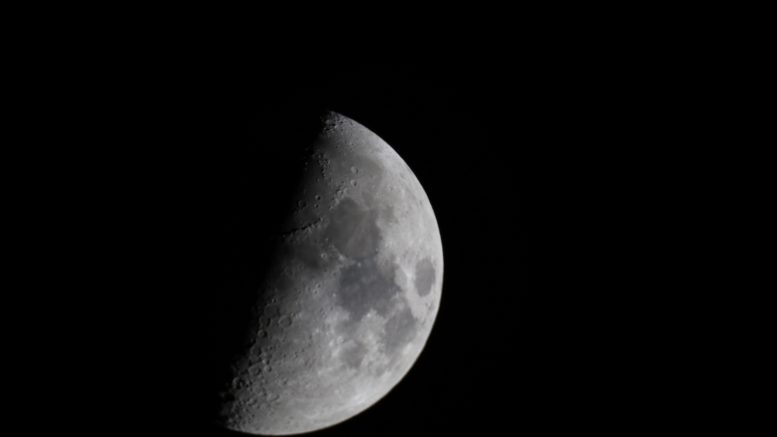Here we are going to talk about the moon phases. The lunar phase or phase of the Moon is the shape of the directly sunlit portion of the Moon as viewed by an observer from Earth. What the observer from Earth would see would be a cyclical and gradual change of the lunar phases over the period of roughly 29.5 days. This is known as a synodic month, and these changes occur because of the orbital positions of the Moon around Earth and of Earth around the Sun shift.
Tidally locked by the Earth’s gravity, the Moon’s rotation means that most of the same lunar side always faces Earth. This near side of the moon is variously sunlit, depending on the position of the Moon in its orbit. The near side that is always sunlit can vary from 0% to 100% light. The boundary between the illuminated and darkened hemispheres is called the lunar terminator. It is noted that one can see more details about the moons surface, including the craters around the lunar terminator than other parts when observing from the moon.
It is worth noting that each of the four lunar phases occur around every 7.4 days. This changes slightly due to the moon’s orbit being elliptical in shape.
Here is some more information about the names of the different moon phases and when the best times to see them are. Plus, we also have included the average moonrise and moonsets to make it easy to understand the timing for each type.
Moon Phases
| Name | Disc Illumination | Visibility | Average Moonrise | Average Moonset |
| New Moon | Disc completely in Sun’s shadow | 12pm | 6am | 6pm |
| Waxing Moon | Right side, 0.1%–49.9% lit disc | 3pm | 9am | 9pm |
|
First Quarter |
Right side, 50% lit disc | 6pm | 12pm | 12am |
| Waxing Gibbous | Right side, 50.1%–99.9% lit disc | 9pm | 3pm | 3am |
| Full Moon | 100% illuminated disc | 12am | 6pm | 6am |
| Waning Gibbous | Left side, 99.9%–50.1% lit disc | 3am | 9pm | 9am |
| Last Quarter | Left side, 50% lit disc | 6am | 12pm | 12am |
| Waning Crescent | Left side, 49.9%–0.1% lit disc | 9am | 3am | 3pm |

Leave a comment